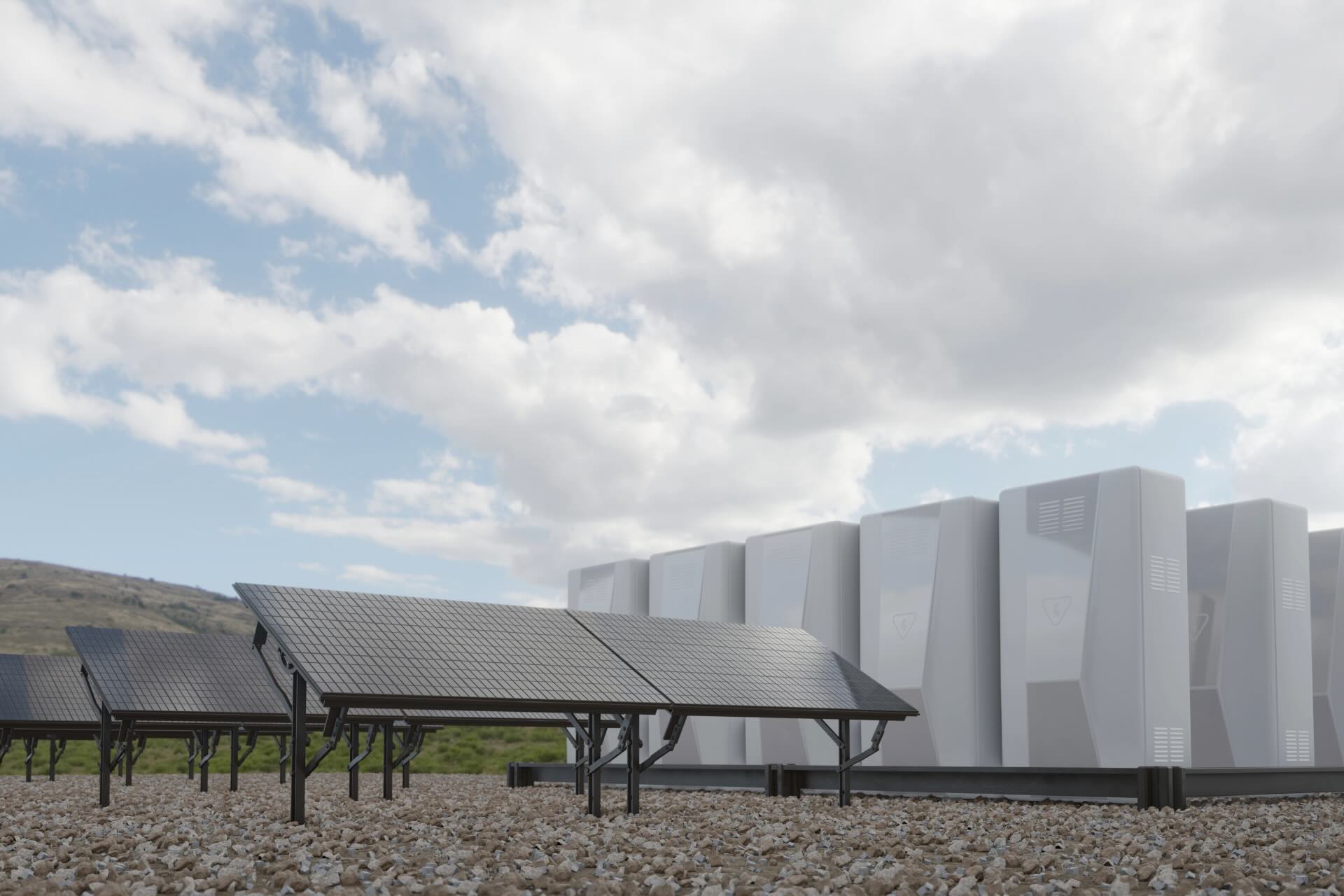Battery storage, or battery energy storage systems (BESS), are devices that enable energy to be stored and then released when the power is needed most. Batteries have emerged as one of the world’s fastest-growing clean energy technologies after a 90% decline in costs over the past 15 years. A record-breaking amount of new-build battery capacity became commercially operational at the end of 2023. But what does this mean for the grid, electricity bills and business?
The backdrop
At lunchtime on Monday 15th April in the UK, electricity generated by burning gas and oil fell to an unprecedented low of just 2.4% for an hour, according to an analysis of data from National Grid’s electricity system operator (ESO). As the UK transitions to clean energy, there will be more and more hours like this, when renewable technologies are powering nearly all of the system. But what happens when the wind doesn’t blow and the sun isn’t shining? That’s where battery storage comes in.
Battery storage can provide short-term flexibility (for periods of 1-8 hours continuously), and ensure there is enough supply to meet peak demands. Batteries act like a sponge, soaking up and storing clean power when there’s plenty available. This stored power can then be discharged when renewables might not be generating enough, for example, at times of peak demand.
Changing the game
Last week the International Energy Agency (IEA) published a report on Batteries and Secure Energy Transitions which highlighted the critical role batteries will play in fulfilling the climate and security goals set at COP28. The report suggests batteries need to lead a sixfold increase in global energy storage to enable the world to meet 2030 targets. In the report, IEA Executive Director Fatih Birol emphasizes the invaluable role batteries will play in scaling up renewables and electrifying transport while delivering secure and sustainable energy for businesses and households, stating that, “Batteries are changing the game before our eyes.”
Too much of a good thing
Another important aspect of BESS is the ability to store electricity when there’s too much being generated. For example, on a very windy day in Scotland there might not be enough capacity on the grid to use all of the electricity being generated. If sufficient battery storage is connected to the grid, this extra energy can be used to charge up batteries. This helps to prevent renewable resources from going to waste. Battery storage makes the most of this energy, and uses it to manage peaks and troughs in demand to operate the electricity system as efficiently as possible – keeping costs down too.
Cost, control and carbon
Whether it’s for large commercial business, a small enterprise, or even at household level, it’s clear that battery storage can offer a way to tackle the complex energy challenges we face. By storing electricity for later use, businesses can reduce the need to draw from the grid at times when tariffs are high. And particularly if there’s onsite renewable generation, it can be stored and used at any time. Greater flexibility over electricity allows cost savings, as well as ensuring that businesses can still be powered by clean energy even when the sun isn’t shining or the wind isn’t blowing. You can read more about some of the benefits of batteries for business here.
Bringing down bills
More widely, the UK government estimates technologies like battery storage systems – supporting the integration of more low-carbon power, heat and transport technologies – could save the UK energy system up to £40 billion ($48 billion) by 2050, ultimately reducing everyone’s energy bills.
It’s clear that storage projects of all sizes are going to be vital to ensure our clean energy system can meet electricity demand all of the time. As the energy transition continues, and we realise the potential of battery energy storage, we’re not just charging up batteries, we’re charging up the possibilities for more efficient, sustainable and reliable power solutions too.
If the content of this or any of our articles has interested you, please get in touch for a no-obligation chat with our industry-leading experts at Sustainable Energy First.














